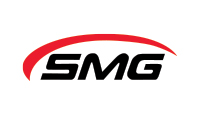We manage energy project development, environmental permitting, remediation and compliance, insustrial hygiene, health & safety, auditing, environmental management, government relations. We solve your problems in all of these areas. We move quickly and dig deeply to reach your goals. We work wherever you are.
How can SMG help you?
SMG POV
New Federal Regulations for Disposal of Coal Ash are Announced
WRITTEN BY
Ken Kirk, P.G.TAGGED
The disposal of coal combustion residuals from electric utilities final rule was published in the Federal Register on December 19, 2014. As SMG highlighted last month here, this rule provides the requirements for the disposal of coal combustion residuals (CCRs), or coal ash, from coal-fired power plants. The most anticipated issue associated with the CCR rule was whether CCRs would be categorized as a hazardous waste or non-hazardous waste under RCRA. With this rule EPA decided not to regulate CCRs as a hazardous waste under Subtitle C of RCRA. Beyond this issue, the rule establishes technical requirements for CCR landfills and surface impoundments under Subtitle D of the Resource Conservation and Recovery Act (RCRA). The full text of this regulation can be review here.
FEATURED PROJECT
PROBLEM
A local company engaged in manufacturing imported a small amount of a chemical substance defined under TSCA. Faced with a potential EPA enforcement action with penalties assessed for noncompliance under TSCA of up to $32,500 per day per violation, the company called SMG for help.
SMG'S APPROACH
SMG analyzed the company’s current TSCA procedures and assisted the company in developing a proactive, cost-effective compliance procedure. SMG also facilitated a training program to educate employees about TSCA.
MG worked with the company to develop mechanisms that assured adherence with the policies that were being implemented for compliance. Procedures to promptly correct any potential violations and prevent future violations were also put into place.
RESULTS
SMG was able to show that the company complied with the relevant TSCA regulations and was improving their TSCA policies and procedures to assure that future issues were less likely to occur. The company was not subjected to the proposed penalties and now has mechanisms in place to maintain TSCA compliance.
